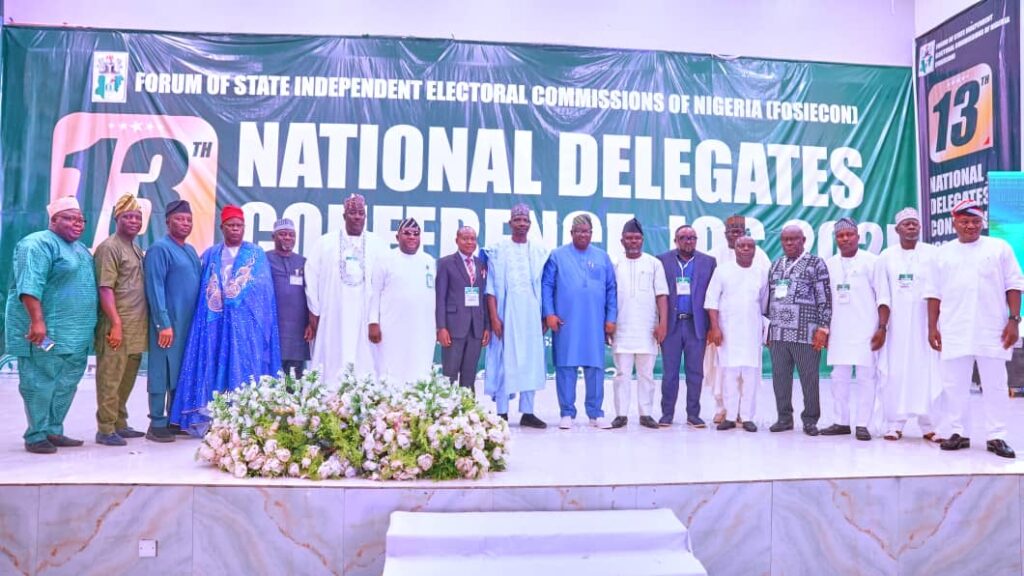Resident Electoral Commissioners (RECs) and other stakeholders have called for the urgent reform of State Independent Electoral Commissions (SIECs) to strengthen their capacity to conduct credible and transparent local government elections.
This call was made during the ongoing 13th National Delegates Conference of the Forum of State Independent Electoral Commissions of Nigeria (FOSIECON), held in Jos, Plateau State.
The conference, supported by the European Union under its Support to Democratic Governance in Nigeria (EU-SDGN) programme, aims to assess the challenges facing SIECs and proffer sustainable solutions.
The call for reform comes amid mounting pressure for the abolition of SIECs and the transfer of their responsibilities to the Independent National Electoral Commission (INEC), or the creation of a new election management body to oversee local elections.
Delivering the keynote address, the INEC Resident Electoral Commissioner for Benue State, Prof. Samuel Egwu, backed the retention and reform of SIECs, stating that they are essential to Nigeria’s federal structure.
“There are three major proposals being considered on how to improve local government elections. The first is that SIECs should be retained and reformed. That is the position I support,” Egwu said.
“The second proposes transferring the responsibility of conducting local elections to INEC, which may appear simple but does not align with the principles of federalism. The third option advocates the creation of an entirely new electoral body, but that idea has already been struck down by the Senate.”
He emphasized that both SIECs and INEC face systemic institutional challenges, and it would be unjustified to scrap one without addressing the underlying issues affecting both.
FOSIECON Chairman, Jossy Eze, expressed concern that despite their constitutional mandate, SIECs often face undue political interference.
“There are several bills in the National Assembly seeking to abolish or restructure SIECs, yet none focus on the core issues affecting their performance. No motion or bill currently addresses the need for genuine reforms,” he stated.
INEC representative, Dr. Oliver Agundu, urged SIECs to embrace a continuous election process, rather than limiting their operations to pre-election periods. He also advocated increased collaboration with civil society organisations and more robust voter education.
“SIECs should treat elections as continuous processes, including post-election phases. Many only become active during election periods, which undermines long-term electoral development,” Agundu noted.
Plateau State Governor, Caleb Mutfwang, said the focus should not be on abolishing SIECs but on enhancing leadership recruitment and governance at the grassroots.
“The real issue is not SIECs’ autonomy but the efficiency of governance. As someone who has served at the local level, I believe the key is to recruit leaders with integrity and vision,” he said.
Also speaking, Nasarawa State Governor, Abdullahi Sule, pledged support for actionable reforms that may emerge from the conference and offered his state as a testing ground for pilot initiatives.
“I hope this conference will generate practical recommendations. I’m confident many governors will back them. Nasarawa State is ready to serve as a pilot for any proposed reforms,” Sule said, citing similar successful initiatives in the state legislature.
















